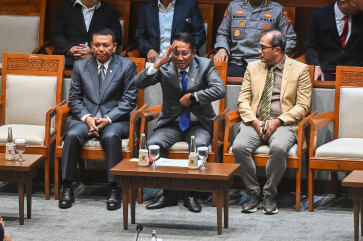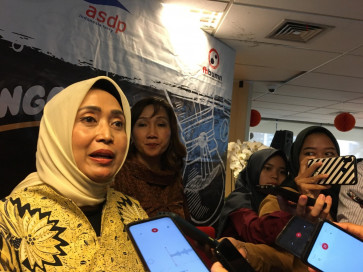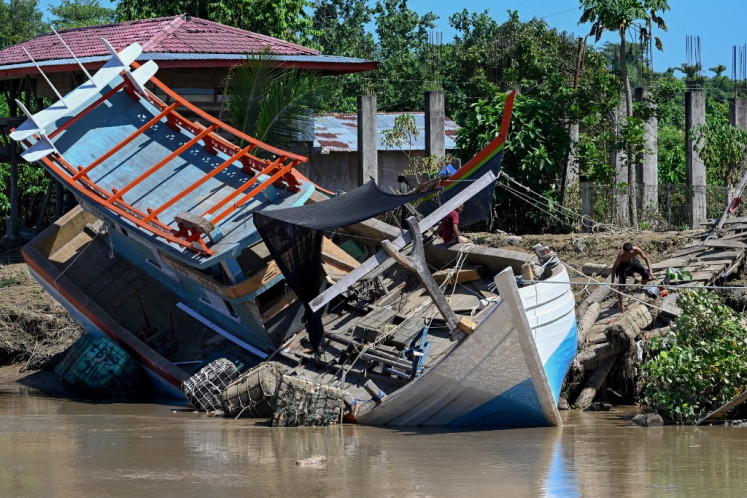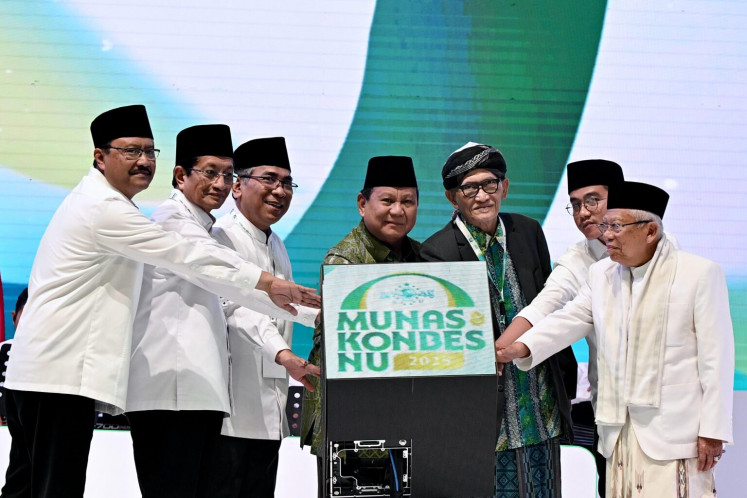Popular Reads
Top Results
Can't find what you're looking for?
View all search resultsPopular Reads
Top Results
Can't find what you're looking for?
View all search resultsSurveillance takes center stage as IGF ends
The four-day Internet Governance Forum (IGF), the largest global multistakeholder meeting on Internet governance, held in Nusa Dua, Bali, ended on Friday with surveillance issues, human rights and regaining trust having emerged as crucial topics
Change text size
Gift Premium Articles
to Anyone
T
he four-day Internet Governance Forum (IGF), the largest global multistakeholder meeting on Internet governance, held in Nusa Dua, Bali, ended on Friday with surveillance issues, human rights and regaining trust having emerged as crucial topics.
A United Nations (UN)-convened annual meeting drew more than 1,500 representatives from governments, civil society, the technical community and the private sector of 111 countries, with hundreds more participating remotely.
'This is not a traditional UN conference in which all member states made legally or non-legally binding decisions. The IGF, on the other hand, is a platform that provides a place for all multistakeholders to meet, to discuss and to find joint solutions for the best and healthiest ways to use the Internet for the betterment of the people,' Thomas Gass, Assistant UN secretary-general for Policy Coordination and Inter-Agency Affairs and co-chair of the IGF, told The Jakarta Post.
Around 135 workshops and sessions held during the four-day gathering, which opened on Oct.22, mostly focused on restoring trust in the Internet and the potential dangers of retrenchment from an open Internet by nations concerned about the security and privacy of their digital communications.
The recent cases of the revelation of Edward Snowden and the US National Security Agency (NSA) cases dominated almost all sessions and discussion and how to prevent similar situations from happening worldwide.
US State Department representative Scott Busby said that the US recognized the many concerns on the issue of surveillance and 'welcomes a discussion about privacy and security, and we are right now intensively having that discussion,' adding that the issue of surveillance globally should 'take into account the views and practices of everyone around the world.'
'The US does not use intelligence collection for the purpose of repressing the citizens of any country for any reason, including their political, religious, or other beliefs,' Busby said.
Ross LaJeunesse of Google said, 'If our users don't trust us, they won't use our products, and they'll go somewhere else.'
Part of maintaining that trust, he said, 'Is not providing any direct access for any government to our data, our servers, our infrastructure,' and not to accept 'large, blanket-like government requests for user data.'
He urged participants to hold all governments accountable to the highest standards, including those 'where journalists are beaten, bloggers are imprisoned and activists are killed.'
Johan Hallenborg, a representative of the Foreign Ministry of Sweden, said that a country needed to introduce a constitutional framework in the area of digital privacy to strengthen trust and to reinforce the principles of rule of law, transparency and respect for human rights. An equally important aspect of protecting rights and the freedom of individuals from the abuse of others, is the ensuring that 'the State itself does not violate rights and freedoms ' in other words, setting the limits for state power,' he said.
In her closing remark, Anne-Rachel Inné, COO of AfriNIC, stated that the IGF meeting here in Bali had allowed all participants to reach out to stakeholders to explore how to move forward.
'In our view, there is no better way to discuss important and delicate issues. It is a truism, but no stakeholder group can do it alone,' Inné said.
Policymakers need input from the technical community ' the legal and regulatory framework needs to evolve based on a solid understanding of the underlying technology. Policymakers also need to understand what is economically viable and policymakers as well as technologists need to understand what is socially acceptable.
The business community and civil society need certainty that their objectives can be met and that their own important concerns can be addressed; that we have a safe and progressive path forward.
'Not everything that is feasible is desirable! For this reason, dialogue between all stakeholder groups is essential for a healthy Internet ecosystem,' she said.










